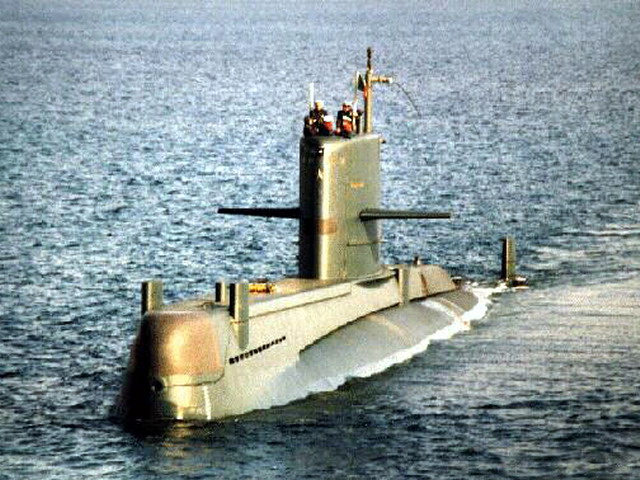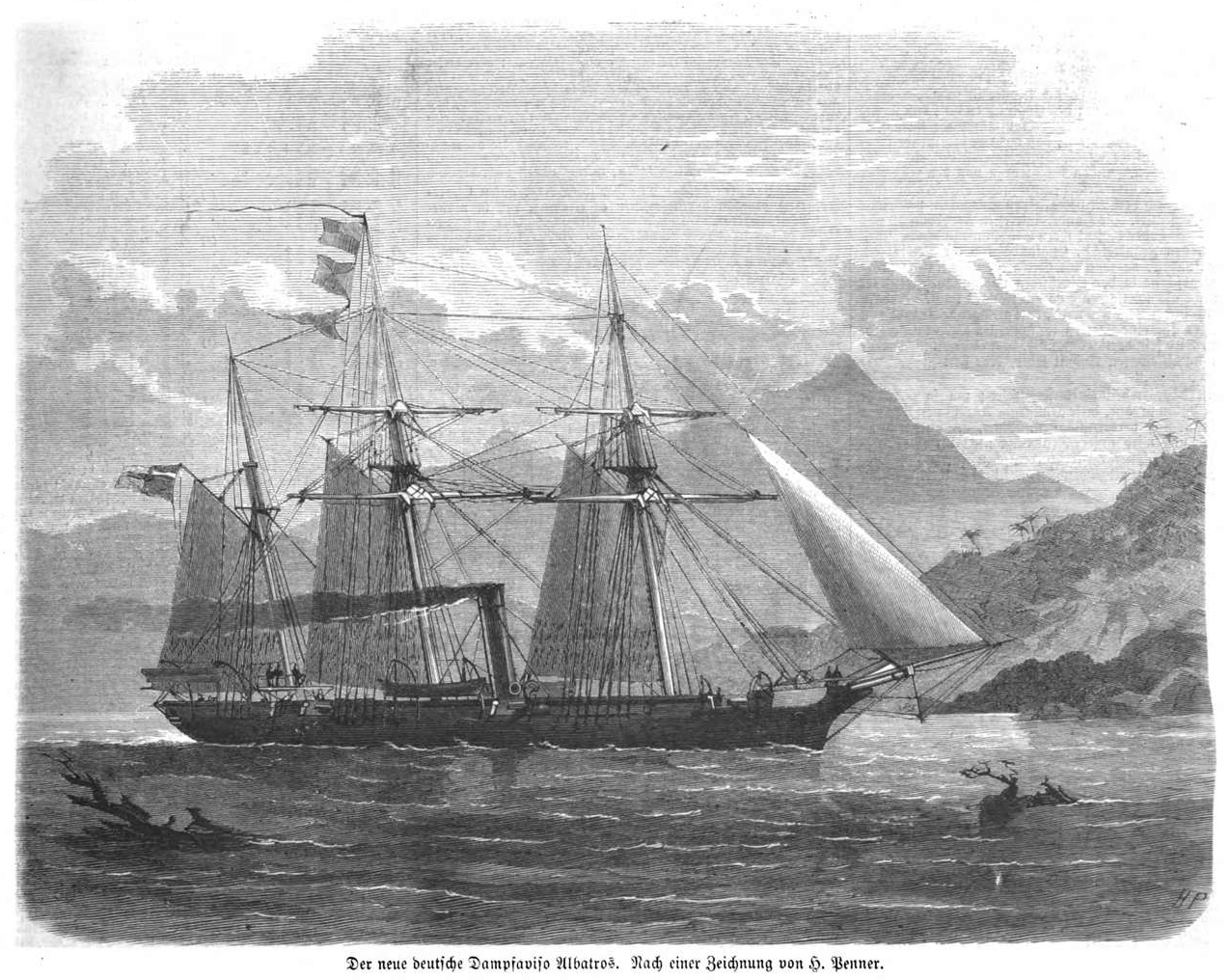
Nazario Sauro
Torpedo boats of the PN type, one of the later series, were numbered from 64 to 69. The ships on which Sauro most often acted as a pilot were almost identical. Photos of Lucy
The submarine Nazario Sauro, long in service in the Marina Militara, has been one of the maritime tourist attractions of Genoa since 2009 - it is moored in the pool next to the Maritime Museum (Galata Museo del mare), it is its largest exhibit. As the second in the Italian fleet, he bears the name and surname of an irredentist who was captured 102 years ago as a result of an unsuccessful combat mission, and soon stood on the scaffold.
The creation of the United Kingdom of Italy, proclaimed in March 1861, was a step towards complete unification - in 1866, thanks to another war with Austria, Venice joined it, and 4 years later, the conquest of Rome put an end to the Papal States. Within the borders of neighboring countries were smaller or larger areas whose inhabitants spoke Italian, called "unliberated lands" (terreirdente). The most far-reaching supporters of joining their homeland thought about Corsica and Malta, the realists limited themselves to what could be taken from the Habsburgs. In connection with the ideological rapprochement with the Republicans, the change of alliances (in 1882, Italy, in connection with the annexation of Tunisia by France, concluded a secret pact with Austria-Hungary and Germany) and the colonial ambitions of Rome, the irredentists began to bother. Despite the lack of support or even police contracts from "their" people, they had no serious problems getting support on the other side of the border, especially in the Adriatic. They did not move for years, only the First World War enlarged Italy at the expense of Trieste, Gorizia, Zara (Zadar), Fiume (Rijeka) and the Istrian peninsula. In the case of the latter Nazario region, Sauro became a symbolic figure.
Beginning of a journey
Istria, the largest peninsula of the Adriatic Sea, remained the longest in its political history under the rule of the Venetian Republic - the first, in 1267, was the officially included port of Parenzo (now Porec, Croatia), followed by other cities on the coast. The interior territories around modern Pazin (German: Mitterburg, Italian: Pisino) belonged to the German feudal lords and then to the Habsburg monarchy. Under the Treaty of Campio Formio (1797), and then as a result of the fall of the Napoleonic Empire, the entire peninsula entered it. The decision in 1859 that Pola, located in the southwestern part of Istria, would become the main base of the Austrian fleet, led to the industrialization of the port (it became a major shipbuilding center) and the launch of railway transport. Over time, the production of coal in the local mine increased significantly (the first shafts were drilled several centuries earlier), and the exploitation of bauxite deposits began. The authorities in Vienna therefore ruled out the possibility of an Italian takeover of the peninsula, seeing their allies in the Croatian and Slovene nationalists, representing the poorer population from rural areas, mainly in the east of the region.
The future national hero was born on September 20, 1880 in Kapodistria (now Koper, Slovenia), a port in the Gulf of Trieste, at the foot of the peninsula. His parents came from families that had lived here for centuries. His father, Giacomo, was a sailor, so his wife Anna took care of the offspring, and it was from her that the only son (they also had a daughter) heard at every opportunity that the real homeland begins northwest of nearby Trieste, which, like Istria should become part of Italy.
After graduating from elementary school, Nazario entered high school, but preferred boat trips or rowboat races to study. After joining Circolo Canottieri Libertas, a local irredentist rowing club, his views became radicalized and his ratings deteriorated. In this situation, Giacomo decided that his son would finish his studies in the second grade and start working with him. In 1901, Nazario became a skipper and married, less than a year later he had his first child, named Nino, in honor of one
with Garibaldi's companions.
In late 1905, after sailing the Mediterranean from France to Turkey, Sauro completed his studies at the Naval Academy of Trieste, passing the captain's examination. He was "the first after God" on small steamships departing from Cassiopeia to Sebeniko (Sibenik). All this time he was in constant contact with the irredentists in Istria, and the cruises to Ravenna, Ancona, Bari and Chioggia were an opportunity to meet the Italians. He became a Republican and, discouraged by the socialists' refusal to war, began to share the opinion of Giuseppe Mazzini that the inevitable great conflict would result in a Europe of free and independent nations. In July 1907, together with other members of the rowing club, he organized a manifestation for the 100th anniversary of the birth of Garibaldi, which took place in Kapodistria and, because of the slogans raised, meant punishment for its participants. For several years, starting in 1908, with a group of confidants, he smuggled weapons and ammunition for the independence fighters in Albania on various sailing ships. His last child, born in 1914, received this name. The names of the others, Anita (after Giuseppe Garibaldi's wife), Libero and Italo, also arose from his beliefs:
In 1910, Sauro became captain of the San Giusto passenger ferry between Capodistria and Trieste. Three years later, the local governor ordered that state institutions and enterprises of Istria could only hire citizens of Franz Josef I. employers who had to pay fines and who were fed up in June 1914, and fired him from his job. It is worth adding here that from an early age, Nazario was distinguished by a violent temperament, turning into impetuosity, bordering on adventurism. Combined with his directness and inappropriate language, it was an embarrassing mixture, only slightly tempered by a self-deprecating sense of humor, which also affected his relationships with the captains and managers of rival ferry lines.
Immediately after the outbreak of the First World War, in early September, Sauro left Kapodistria. In Venice, where he moved with his eldest son, he campaigned for Italy to take the side of the Entente. Using fake passports, he and Nino also took propaganda materials to Trieste and spied there. Intelligence activities were not new to him - many years before moving to Venice, he came into contact with the Italian vice-consul, to whom he transmitted information about the movements of the imperial-royal parts of the fleet and the fortifications at its bases.
Lieutenant Sauro
Shortly after Nazario and Nino moved to Venice, in the autumn of 1914, the authorities in Rome, declaring their will to remain neutral, began negotiations with the warring parties to "sell" it as expensive as possible. The Entente, using economic blackmail, gave more, and on April 26, 1915, a secret treaty was signed in London, according to which Italy was to go over to its side within a month - the price was a promise that a new ally would appear after the war. get, among others, Trieste and Istria.
On May 23, the Italians kept their agreement by declaring war on Austria-Hungary. Two days earlier, Sauro volunteered to serve in the Royal Navy (Regia Marina) and was immediately accepted, promoted to lieutenant and assigned to the Venetian garrison. He had already taken part in the first combat operations as a pilot on the destroyer Bersagliere, which, along with his twin Corazsiere, covered Zeffiro when the latter, two hours after midnight on 23/24 May, entered the waters of the Grado lagoon. in the western part of the Gulf of Trieste and there he launched a torpedo towards the embankment in Porto Buzo, and then fired at the local barracks of the imperial army.

